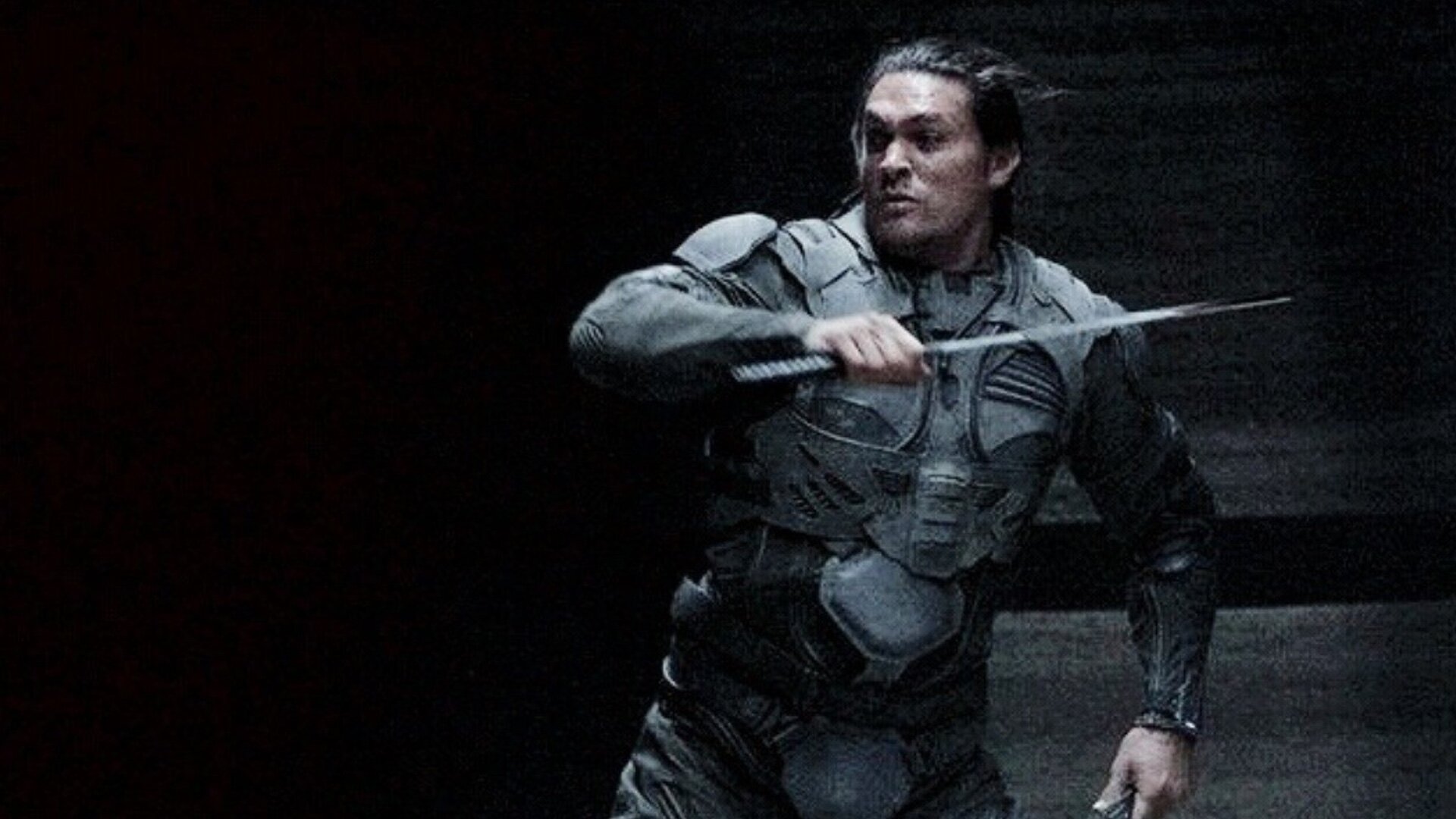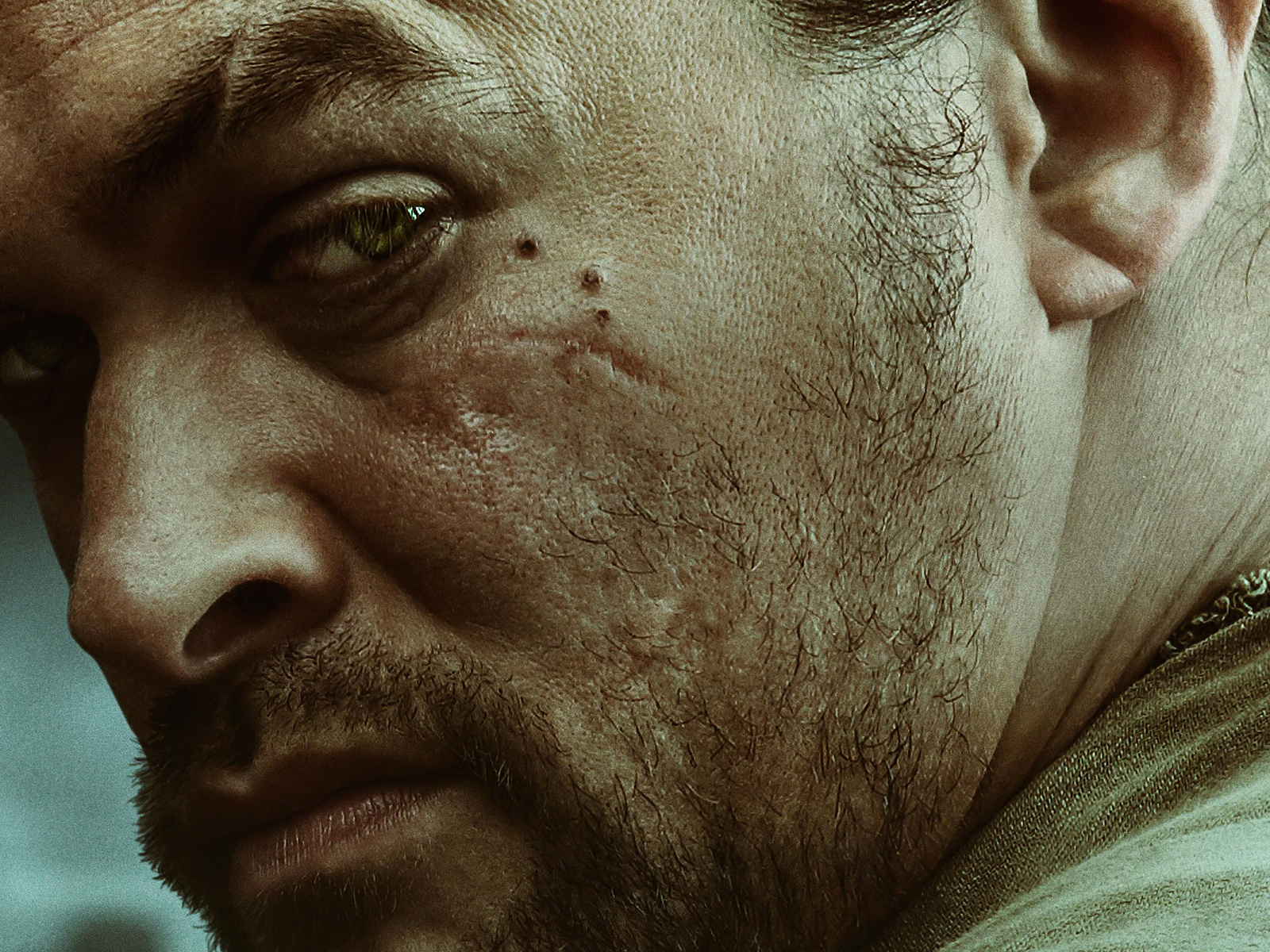Jason Momoa’s Portrayal of “Dune”

Jason Momoa’s portrayal of Duncan Idaho in Denis Villeneuve’s “Dune” (2021) is a standout performance that captures the essence of the character while adding a unique layer of intensity and charisma. Momoa’s portrayal is a testament to his versatility as an actor, demonstrating his ability to inhabit a character deeply rooted in the “Dune” universe while bringing his own distinctive flair to the role.
Comparison with Previous Interpretations, Jason of dune nyt
Momoa’s Duncan Idaho stands out from previous interpretations of the character, particularly in the 1984 film adaptation and the “Dune” miniseries. While previous portrayals emphasized Duncan’s stoicism and martial prowess, Momoa brings a more nuanced and emotional depth to the character. He portrays Duncan as a warrior with a playful and sardonic sense of humor, a trait that adds depth to his relationship with Paul Atreides. This portrayal is consistent with the novel’s depiction of Duncan as a complex and multi-faceted individual.
Momoa’s Physicality and Acting Style
Momoa’s physical presence is undeniably impactful, contributing significantly to Duncan Idaho’s aura of strength and power. His imposing physique and commanding presence immediately establish Duncan as a formidable warrior, reinforcing his reputation as a skilled swordsman and a loyal protector. Momoa’s acting style, characterized by a mix of intensity and charisma, further enhances the character’s impact. His ability to convey Duncan’s stoic determination and unwavering loyalty through subtle facial expressions and body language adds a layer of depth to the character.
Significance of Duncan Idaho in the “Dune” Universe
Duncan Idaho is a pivotal character in the “Dune” universe, serving as both a mentor and a close confidant to Paul Atreides. He plays a crucial role in Paul’s development, instilling in him the values of loyalty, honor, and courage. Momoa’s performance enhances the significance of Duncan Idaho’s role by highlighting the character’s unwavering loyalty and dedication to Paul. His portrayal of Duncan’s protectiveness towards Paul adds a layer of emotional depth to their relationship, underscoring the importance of Duncan’s guidance and support in Paul’s journey to becoming the Kwisatz Haderach.
The “Dune” Adaptation and its Impact on Popular Culture

The 2021 adaptation of “Dune” directed by Denis Villeneuve marked a significant event in popular culture, revitalizing interest in the science fiction and fantasy genres. The film’s success can be attributed to its stunning visuals, captivating storytelling, and thought-provoking themes. This adaptation sparked a renewed wave of fascination with the world of “Dune,” influencing other works of fiction and pushing the boundaries of cinematic storytelling.
The “Dune” Adaptation’s Influence on Popular Culture
The “Dune” adaptation had a profound impact on popular culture, reigniting interest in the science fiction and fantasy genres. The film’s success can be attributed to its captivating storytelling, stunning visuals, and thought-provoking themes. The film’s influence can be seen in various aspects of popular culture, including:
- Increased Interest in the “Dune” Universe: The film sparked a resurgence of interest in Frank Herbert’s original novels, leading to increased sales and a renewed appreciation for the complex world he created. This resurgence of interest also extended to other “Dune” adaptations, including the 1984 film directed by David Lynch.
- Renewed Interest in Science Fiction and Fantasy: The film’s success contributed to a broader cultural shift towards science fiction and fantasy, which are now considered mainstream genres. The film’s themes of environmentalism, political intrigue, and social justice resonated with audiences, contributing to the growing popularity of these genres.
- Influence on Other Works of Fiction: The film’s influence can be seen in other works of fiction, including television shows, video games, and novels. For example, the HBO series “House of the Dragon” draws inspiration from “Dune’s” political intrigue and power struggles. The video game “Elden Ring” also incorporates elements of “Dune’s” vast and intricate world-building.
Critical Reception of the “Dune” Adaptation
The “Dune” adaptation received critical acclaim for its visual effects, storytelling, and themes. Critics praised the film’s stunning visuals, which captured the vast and desolate landscape of Arrakis. The film’s storytelling was also lauded for its complex characters, intricate plot, and thought-provoking themes.
- Visual Effects: The film’s visual effects were widely praised for their stunning realism and immersive quality. The depiction of the sandworms, the giant creatures that inhabit Arrakis, was particularly impressive. Critics lauded the film’s ability to transport viewers to the world of “Dune,” creating a truly cinematic experience.
- Storytelling: The film’s storytelling was also praised for its complexity and depth. Critics admired the film’s ability to adapt the intricate plot of Herbert’s novel while still remaining accessible to a wider audience. The film’s exploration of themes such as environmentalism, political intrigue, and social justice was also well-received.
- Themes: The film’s themes resonated with critics, who praised its exploration of complex social and political issues. The film’s exploration of environmentalism, political intrigue, and social justice was particularly relevant to contemporary audiences.
The “Dune” Universe and its Literary Legacy: Jason Of Dune Nyt

The “Dune” universe, crafted by the visionary Frank Herbert, transcends the realm of mere science fiction, becoming a rich tapestry of complex themes, enduring characters, and philosophical inquiries that continue to resonate with readers across generations. From the original novel’s publication in 1965, the “Dune” series has expanded into a sprawling saga, captivating audiences with its intricate world-building, captivating characters, and profound exploration of the human condition.
The Evolution of the “Dune” Universe
The “Dune” universe began with the seminal novel, “Dune,” published in 1965. This groundbreaking work introduced readers to the harsh desert planet of Arrakis, home to the valuable spice melange, and the complex political and ecological struggles that unfold on its unforgiving sands. The novel’s success spawned a series of sequels, written by Frank Herbert himself, further expanding the “Dune” universe and its intricate lore.
- “Dune Messiah” (1969): This sequel delves deeper into the political machinations and religious implications of the events in the first book, exploring the consequences of Paul Atreides’ rise to power.
- “Children of Dune” (1976): The third book in the series focuses on the twins, Leto II and Ghanima, born to Paul and Chani, and their journey towards fulfilling the destiny foretold by the Bene Gesserit.
- “God Emperor of Dune” (1981): This installment chronicles Leto II’s transformation into a giant sandworm and his reign as a god-emperor, a period marked by profound changes and the exploration of the relationship between power, responsibility, and the human condition.
- “Heretics of Dune” (1984): This book focuses on the emergence of the “Scattered” and their resistance against Leto II’s rule, highlighting the importance of individual agency and freedom.
- “Chapterhouse: Dune” (1985): The final book written by Frank Herbert, this installment concludes the original “Dune” saga, leaving readers with a sense of both closure and anticipation for what lies beyond the known universe.
After Frank Herbert’s passing, his son, Brian Herbert, and Kevin J. Anderson continued the “Dune” saga, adding further chapters to the universe’s rich history. These additions include:
- “Dune: The Butlerian Jihad” (2001): This prequel explores the events leading up to the creation of the Butlerian Jihad, a rebellion against thinking machines that serves as the foundation for the “Dune” universe.
- “Dune: The Machine Crusade” (2002): This prequel delves further into the Butlerian Jihad, detailing the conflict between humanity and the machines.
- “Dune: The Battle of Corrin” (2003): This prequel focuses on the final battle of the Butlerian Jihad, showcasing the decisive victory of humanity against the machines.
- “Dune: The Sandworm’s Wake” (2004): This prequel explores the aftermath of the Butlerian Jihad and the rise of the Fremen culture on Arrakis.
- “Dune: Hunters of Dune” (2006): This sequel continues the story of the “Dune” universe after the events of “Chapterhouse: Dune,” introducing new characters and exploring the vastness of the universe.
- “Dune: The Sandworm’s War” (2007): This sequel further explores the events after “Chapterhouse: Dune,” highlighting the conflict between the scattered and the remaining factions of the Imperium.
Key Themes and Concepts in the “Dune” Universe
The “Dune” universe is a fertile ground for exploring complex themes and concepts, reflecting upon the human condition, the nature of power, and the delicate balance of ecology.
Ecology and the Environment
The “Dune” universe places a strong emphasis on the importance of ecological balance and the consequences of human actions on the environment. Arrakis, the primary setting of the series, is a harsh desert planet where water is scarce and life is constantly threatened by the unforgiving environment.
“The desert is a harsh mistress, but she is also a wise teacher.” – Frank Herbert, Dune
The Fremen, the indigenous people of Arrakis, have developed a deep understanding of the desert’s delicate ecosystem, adapting their way of life to the harsh realities of their environment. Their respect for the sandworms, the giant creatures that are essential to the planet’s ecosystem, underscores the importance of living in harmony with nature.
Politics and Power
The “Dune” universe is rife with political intrigue, showcasing the complexities of power struggles and the consequences of ambition. The story revolves around the noble houses of the Imperium, each vying for control of the valuable spice melange and the ultimate power it bestows.
“Power corrupts. Absolute power corrupts absolutely.” – Lord Acton
The struggle for power in the “Dune” universe is not simply about acquiring wealth and influence but also about shaping the destiny of the human race. The characters grapple with the ethical dilemmas of wielding power, the seductive allure of absolute control, and the dangers of unchecked ambition.
The Human Condition
At its core, the “Dune” universe explores the complexities of the human condition, delving into themes of destiny, free will, and the search for meaning. The characters grapple with their own limitations, the weight of their choices, and the enduring struggle for self-discovery.
“Fear is the mind-killer. Fear is the little-death that brings total obliteration. I will face my fear. I will permit it to pass over me and through me. And when it has gone past I will turn the inner eye to see its path. Where the fear has gone there will be nothing. Only I will remain.” – Frank Herbert, Dune
The “Dune” universe explores the human capacity for both good and evil, showcasing the potential for both great acts of compassion and unimaginable cruelty. The characters’ journeys highlight the importance of embracing the challenges of life, learning from mistakes, and striving for a better future.
Jason of dune nyt – The New York Times review of “Jason of Dune” delves into the intricate world of Frank Herbert’s iconic universe, highlighting the complex dynamics of power and the legacy of Duncan Idaho. The article delves into the multifaceted character of Jason, exploring his connection to the legendary swordsman and his impact on the future of Arrakis.
To understand Jason’s role in this epic saga, one must delve into the rich tapestry of Duncan Idaho’s legacy, which is beautifully explored in jason of dune. The NYT review ultimately emphasizes the profound impact of Jason on the Dune universe, leaving readers with a deeper understanding of the intricate web of relationships and the enduring power of the past.
The New York Times’ review of “Jason of Dune” highlighted the film’s stunning visuals and complex characters, but it was the casting of Jason Momoa as Duncan Idaho that truly captured the attention of audiences. His portrayal of the fierce and loyal warrior resonated with viewers, making him one of the most memorable aspects of the film.
The impact of Momoa’s performance on the film’s success can be seen in the way audiences embraced the character and the jason of dune actor himself, further solidifying the film’s place in popular culture.
